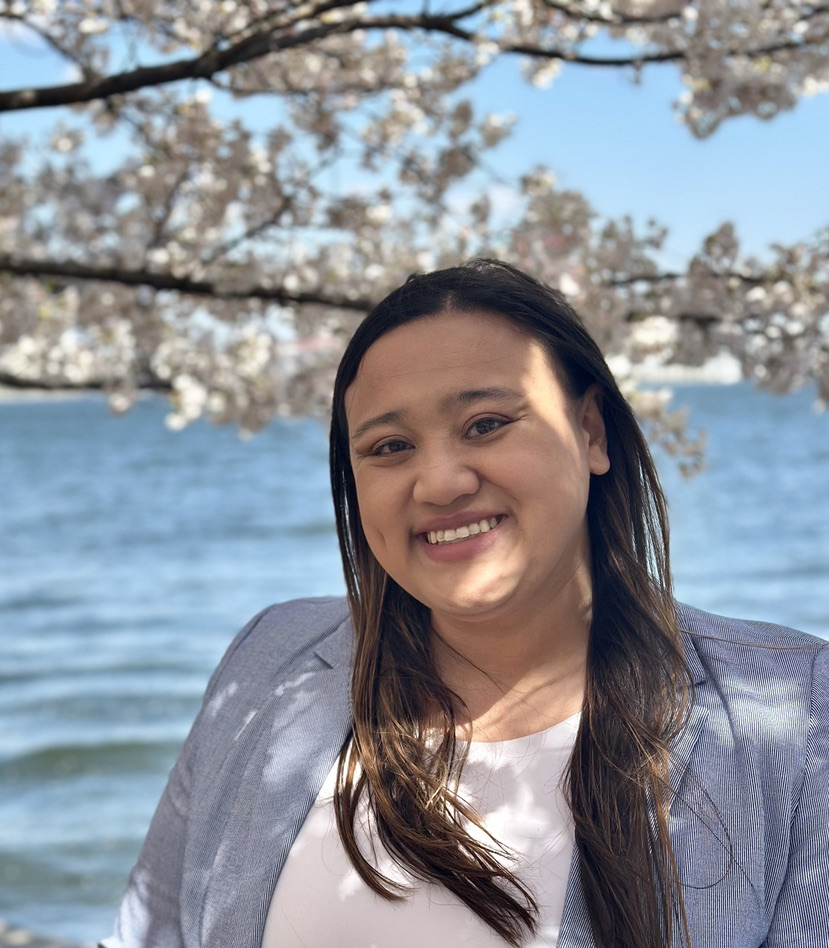As her Health Equity Fellowship comes to a close, we’re proud to spotlight Dominique Seo, PhD candidate in Pharmaceutical Health Services Research at the University of Maryland, Baltimore. Over the past year, Dominique has brought deep expertise in pharmacoeconomics, with a focus on drug pricing, access, and health disparities, to the Center for Innovation & Value Research. We sat down with Dominique to reflect on her fellowship experience, the lessons she’s taking with her, and how she’s helping to advance equity in patient-centered research.
What initially drew you to the Health Equity Fellowship at the Center, and how did it align with your academic and career goals?
Before applying for the Health Equity Fellowship at the Center, I had been following the Center’s work for a few years. The Center’s mission to advance patient-centered value/health technology assessment (V/HTA) complements my research interests. I was also attracted to the Center’s efforts to develop frameworks that spotlight patient-centered outcomes and consider the broader societal impacts of treatments, especially for rare and chronic conditions.
Can you share a project or initiative you worked on during your fellowship that had a lasting impact on you?
During the Patient-Centered Economic Impacts Workshops, I learned that developing these workshops requires significant behind-the-scenes work, and through this process, I gained a deeper understanding of the importance of detailed project planning and effective teamwork. This experience taught me the value of keeping patients at the forefront of economic evaluations. Listening to patients and learning from their experiences, whether through meetings with the Patient Advisory Council, during workshop preparation, or in the workshops themselves, made me realize how much work there is to be done in truly centering patient voices in value research. This experience has made me hopeful for the future of patient-centered research.
What were some of the most valuable lessons or takeaways you gained from your time at the Center?
My time at the Center has been a deeply valuable experience, providing insights into both technical and interpersonal aspects of health services research. Working in a non-profit research setting helped me understand how organizational research agendas are shaped, how projects are selected and prioritized, and how crucial budgeting and communication are in a collaborative research environment.
I developed a stronger ability to present research effectively to diverse audiences. Through presentations at internal meetings and external conferences, I learned the importance of tailoring the messaging depending on the audience. I have also built on my technical skills, particularly in cost-effectiveness analysis and improved my ability to synthesize literature and communicate nuanced research findings through formats like blog posts, commentaries, and abstracts.
In what ways do you think your work contributed to advancing the Center’s mission of promoting patient-centered, equitable research?
I have contributed to advancing the Center’s mission of promoting patient-centered, equitable research by developing a tool that measures equity in patient-centered value research. This tool is designed for internal use to help the Center assess upcoming projects and determine how well they align with the recommendations in the Centering Equity in Patient-Centered Value Assessment Framework. By providing a practical way to evaluate our work through an equity lens, I hope this tool can lead to meaningful improvements in our research approach. Looking ahead, I’m excited about the potential to validate this framework and eventually share it with external researchers, further promoting equity within the broader research community.
How has this experience shaped your perspective on health equity?
This experience has broadened my understanding of health equity by demonstrating that equity goes far beyond traditional definitions like race, gender, or geography. It means recognizing and including patients and caregivers as equal partners in the research process and centering their voices, experiences, and insights at the beginning.
This fellowship reinforced that equity needs to be embedded into every stage of research planning and execution if we truly want to achieve patient-centered, meaningful outcomes.
Dominique’s time at the Center has left a lasting mark. From co-leading initiatives to developing a practical tool for evaluating equity in research, her contributions reflect a strong commitment to centering patients and addressing structural disparities in healthcare. As she completes her fellowship, we thank her for her insight, leadership, and thoughtful engagement, and we’re excited to see how she continues to champion patient-centered value in her future work.
